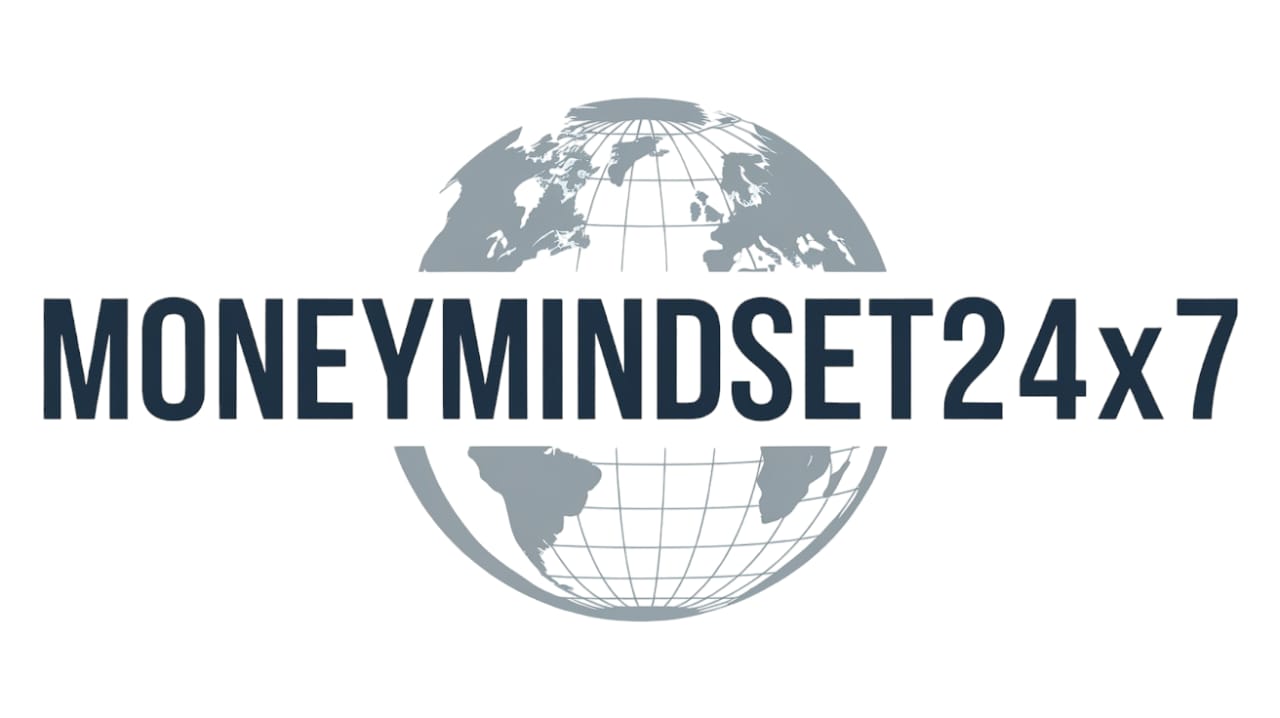You’ve Just Received That Magical SMS
Rs 28,670.00 credited to a/c XXXXX1234 on 26-05-25 by a/c linked from TATA XXXX NEFT Ref No 3056967575278
You stare at your phone, smile, and feel a rush. This is it.
You’ve earned your first salary. You’ve moved from dependence to freedom (or so it feels).
The world suddenly looks like a shopping mall. 😎🛍️
But hang on…
Before you splurge on that smartwatch, limited-edition sneakers, or a random weekend trip, pause and breathe.
Because how you treat your first paycheck sets the tone for the rest of your financial life.
Will you become someone who’s constantly broke by the 20th of each month? Or someone who’s calm, in control, and financially free by 35?
Let’s unpack it all.
🧠 Why Your First Paycheck Feels So Powerful
That salary isn’t just rupees in your account. It’s validation.
-
You’re no longer dependent on parents.
-
You can finally afford things you once only dreamed of.
-
It feels like the beginning of the “good life.”
But here’s the contrarian truth:
“Your first paycheck is NOT for spending.
It’s for building financial muscles you’ll need your whole life.”
❌ The 7 Most Common Mistakes People Make with Their First Paycheck (And How to Avoid Them)
🚨 Mistake #1: Spending Before Planning
What Happens:
Money hits your account → You buy stuff → Regret by Day 20 → “Where did my salary go?”
Avoid It With:
🧠 The 24-Hour Rule: Want to buy something non-essential? Wait 24 hours. If you still want it, buy it.
📊 Pre-spend Planning: Before spending, allocate:
-
30% savings
-
50% essentials
-
20% fun
🛍️ Mistake #2: Rewarding Yourself Too Much
What Happens:
“Let me treat myself — I’ve worked hard.”
Then treat yourself again. And again. And again. 🙄
Avoid It With:
🎁 Guilt-Free Fund: Set aside ₹2,000/month as your “Fun Fund.” Spend it without guilt. But don’t exceed it.
📉 Mistake #3: Not Saving Anything Because “It’s Too Small”
What Happens:
“I only earn ₹28,000 — how much can I even save?”
Avoid It With:
📈 Micro-Saving Hack: Save ₹500/week in a liquid fund or digital gold.
Use apps like Zerodha Coin, Paytm Money, or Groww to start SIPs.
Even ₹1,000/month becomes ₹2.3 Lakhs in 10 years @12% returns.
🔐 Mistake #4: Thinking Insurance is for Old People
What Happens:
You ignore health insurance and term plans.
Then boom — a hospital visit wipes out 3 months of salary.
Avoid It With:
🛡️ Get a basic health insurance of ₹5–10 Lakhs (Group cover + Personal policy).
💀 If you support anyone financially (parents, siblings), get term insurance. Premiums are dirt cheap when you’re young.
💳 Mistake #5: Getting a Credit Card Without a Credit Brain
What Happens:
You swipe, miss the due date, pay minimum balance, enter the debt trap.
Avoid It With:
💳 If you get a credit card:
-
Never spend more than 30% of the limit.
-
Always pay full amount before due date.
-
Use credit card for rewards, not for lifestyle upgrade.
📱 Mistake #6: Buying EMIs for Lifestyle, Not Assets
What Happens:
“You only live once” → iPhone on EMI → AirPods on EMI → Lifestyle on loan
Avoid It With:
🧾 Golden Rule: Only take EMI for assets that grow (education, upskilling, home loan).
Gadgets? Save and buy outright.
🎯 Mistake #7: No Goal, No Plan
What Happens:
You earn. You spend. Month ends. Repeat.
You feel stuck and wonder why others seem “ahead” financially.
Avoid It With:
📒 Write 3 simple goals:
-
Emergency Fund of ₹25,000 in 6 months
-
Invest ₹1,000/month in ELSS or hybrid funds
-
Buy health insurance by Month 4
Put it on your wall. Track monthly.
🔐 12-Month Roadmap to Master Your First Year of Earning
Here’s your ultimate guide, broken down into practical phases:
🔹 Month 1–3: Foundation
-
Start SIP (₹1,000–₹2,000)
-
Create ₹10,000 emergency fund
-
Learn to track expenses using Walnut, Moneyfy, or Goodbudget
-
Use only debit card for purchases
🔸 Month 4–6: Awareness
-
Increase SIP to ₹3,000/month
-
Get health insurance
-
Build an Excel tracker for net worth
-
Take one online course (LinkedIn Learning, Coursera, etc.)
🔺 Month 7–12: Expansion
-
Open PPF or NPS for long-term tax-saving growth
-
Explore ELSS funds for tax planning
-
Set a 1-year goal (e.g. Buy a laptop without EMI)
-
Start a side hustle or freelance income (if possible)
📊 Numbers Don’t Lie: Let’s Do Some Quick Math
You save just ₹2,500/month in a simple index fund from age 22.
By 45, assuming 12% return, you’d have:
👉 ₹50+ Lakhs.
Without ever increasing your investment.
Now imagine you grow that to ₹5,000/month.
Now we’re talking ₹1 Cr+. 😎
And all this started with your first paycheck.
🧘♂️ The Wealth Formula Nobody Teaches in School
Here it is:
Wealth = (Income – Ego) × Time
Let your income grow. Keep your ego low. Give time its due.
That’s the real flex.
📚 Real Story: Rohan vs. Kritika
Rohan:
Got his first salary → Bought a PlayStation → Frequent Zomato orders → Credit card debt
After 2 years, zero savings, stressed every month.
Kritika:
Started ₹2,000 SIP, built ₹20,000 emergency fund, upskilled, got promoted twice.
Same income, different mindset. Different outcome.
💬 Final Reflection
Your first paycheck is a beginning — not a bonus.
Use it to buy your freedom, not just things.
It’s not about being boring. It’s about being balanced.
🎯 So let me ask you this:
What will your first paycheck say about your future — a quick high or a solid foundation?
👇 Tell me your first paycheck story in the comments.
I’d love to hear how you spent, saved, or screwed up. No judgment — just real talk. 💬
❓Frequently Asked Questions (FAQs) on Managing Your First Paycheck
🧾 Q1: How much of my first salary should I save?
Answer:
Start with the 30% Rule:
30% for savings/investments
50% for essential expenses (rent, bills, groceries)
20% for guilt-free spending (eating out, shopping)
Even if you can’t do 30%, start small (even ₹500–₹1,000/month) — it’s the habit that matters most early on. 📈
🏦 Q2: Where should I invest if I’m new and want to start with low risk?
Answer:
Here’s a safe & simple starter pack:
🪙 Liquid Mutual Funds or Recurring Deposit – For building an emergency fund
📉 Balanced Advantage Funds – For a mix of equity and debt
📊 Index Funds (Nifty 50, Sensex) – Low cost, passive wealth builder
Start with SIPs on platforms like Groww, Zerodha Coin, or Kuvera.
📉 Q3: Should I start saving for retirement from my first job? Isn’t it too early?
Answer:
Nope — it’s the BEST time.
If you start investing ₹2,000/month from age 22, you can easily build ₹1 crore+ by age 45, thanks to compounding.
Start now, and your future self will thank you. 🙏
🛡️ Q4: Do I need health insurance if I already have a company policy?
Answer:
Yes. Company health insurance:
Ends when you leave the job
May not be enough in case of major illness
Buy a personal health cover of ₹5–10 Lakhs early — premiums are low and you avoid exclusions later. Bonus: Helps with tax saving too. ✅
💳 Q5: Should I get a credit card with my first salary?
Answer:
Yes, but only if you’re disciplined.
✅ Use it for small, planned purchases
❌ Never carry forward the balance
💡 Pay the full amount before due date — not just the minimum
Use credit cards to build your credit score, not your lifestyle.
🎯 Q6: What should my first financial goals be after getting a job?
Answer:
Start with these 5 simple goals:
🧯 Build ₹25,000 emergency fund in 6 months
🏥 Buy personal health insurance
📈 Start a SIP of ₹1,000–₹2,000/month
📚 Upskill through online learning
📒 Track your monthly spending & net worth
🧠 Q7: Is it okay to spend a bit and enjoy my salary, or should I be super strict?
Answer:
It’s okay to enjoy — but within limits.
Set a “Fun Fund” (₹2,000–₹3,000/month) and spend guilt-free.
But don’t let YOLO become your bank balance’s enemy.
Freedom isn’t in spending everything. It’s in knowing you can say yes or no — because you’re in control.
📚 Q8: Any books or courses you’d recommend for beginners?
Answer:
Absolutely! Here’s a quick starter list:
📚 Books:
The Psychology of Money by Morgan Housel
Rich Dad Poor Dad by Robert Kiyosaki
Let’s Talk Money by Monika Halan (India-specific)
🎓 Courses (Free/Paid):
Basics of Stock Market – Zerodha Varsity (Free)
Personal Finance – Coursera/Skillshare/LinkedIn Learning
Mutual Fund 101 – Groww YouTube channel
🧾 Q9: I don’t understand taxes. How should I plan them from my first job?
Answer:
Simple tax planning 101:
🧾 Submit your investment proofs by December (ELSS, PPF, insurance)
🏦 Open a PPF or NPS account for long-term saving + tax benefits
🧠 Use the Old Regime if you have deductions; else consider New Regime
Consider talking to a CA (or a financial planner 😉) for a 30-minute tax walkthrough every February–March.
💸 Q10: What’s the biggest money mistake you see people make in their 20s?
Answer:
Trying to “look rich” instead of becoming rich.
Flashy gadgets, weekend getaways, impulse shopping — all from borrowed money or credit.
Don’t confuse looking successful with being financially secure.
Other Articles:
Retirement Planning: Why Most Indians Fail at Retirement Planning


